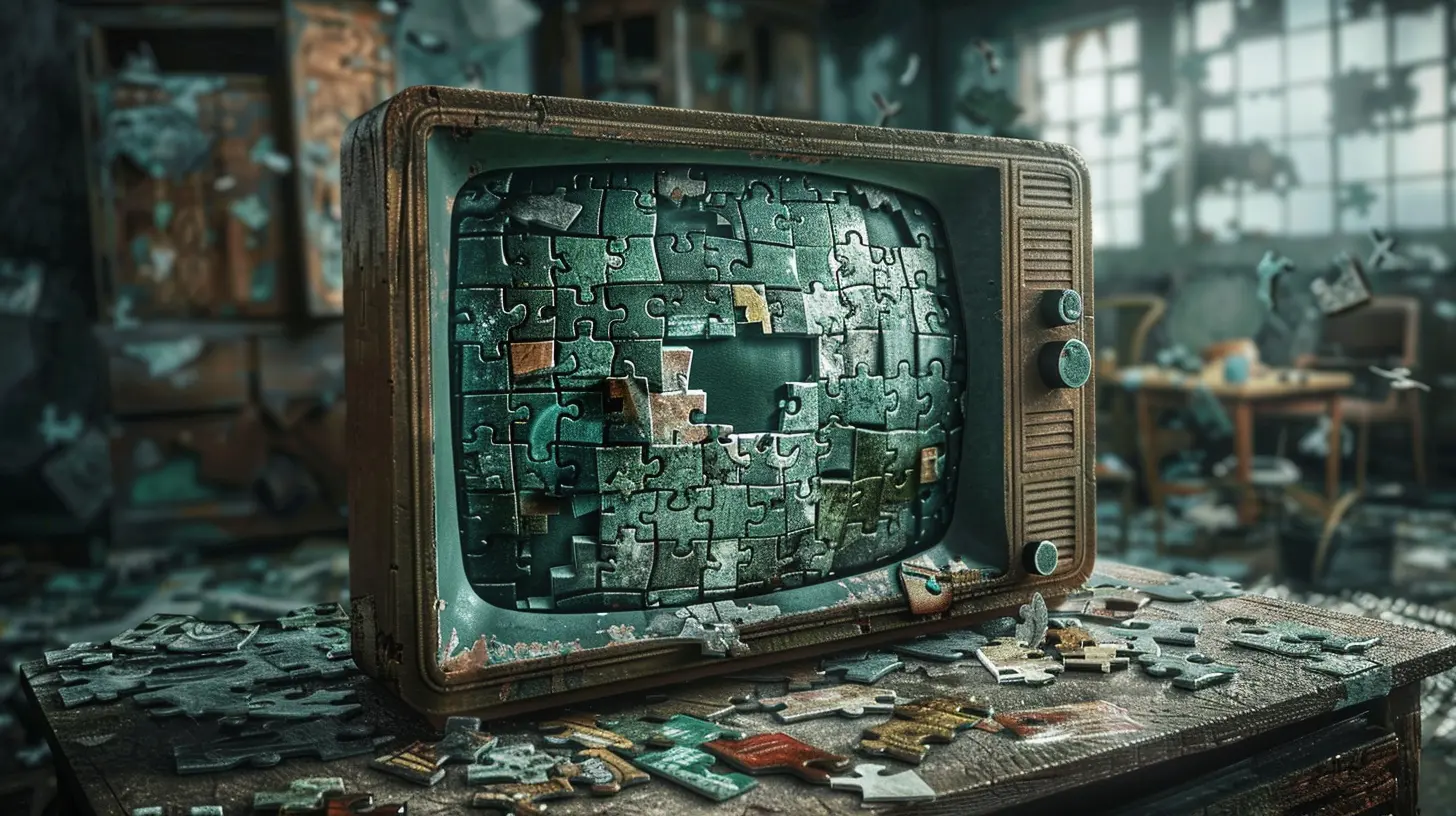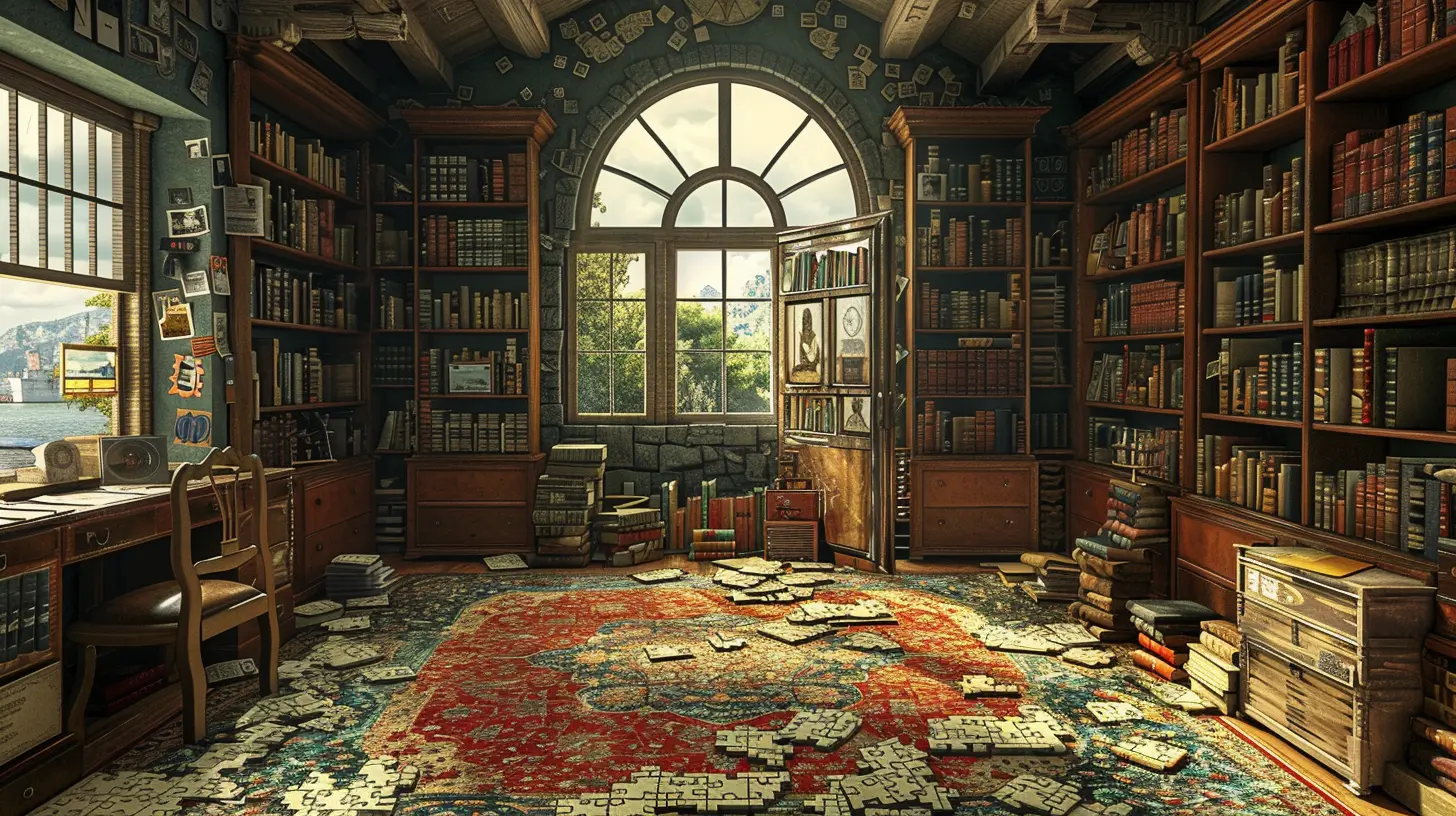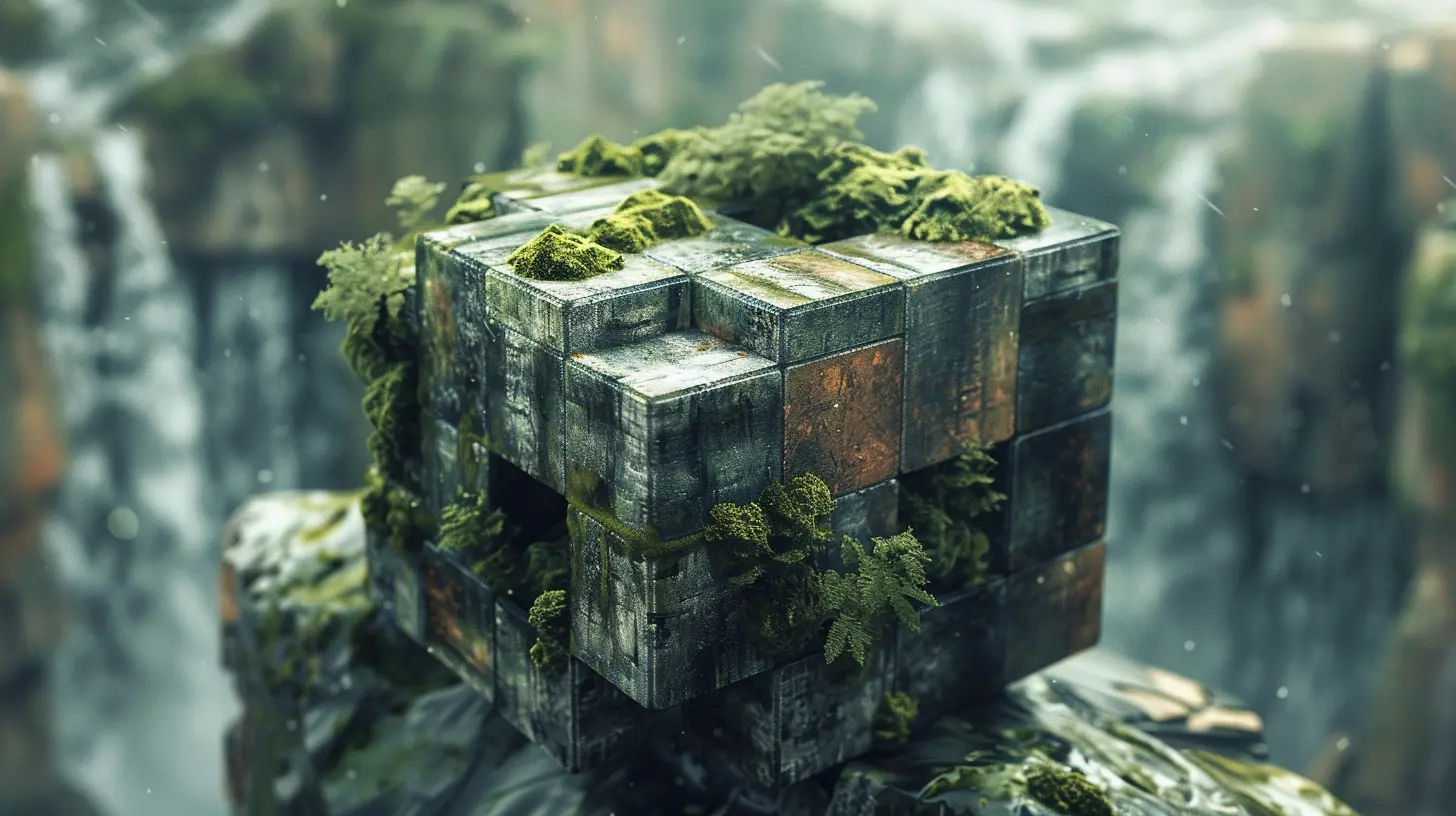Puzzle Games That Will Make You Think Outside the Box
4 July 2025
Let’s be real for a second—some games are made for killing time, some for blowing stuff up, and then there are those brilliant few that give your brain the workout it didn’t know it needed. Puzzle games have long held a special spot in the gaming world. They're not just about matching colors or solving Sudoku grids anymore. We’re talking about games that bend your mind, force you to think differently, and sometimes make you question your own logic.
If you’re craving that “Aha!” moment or just looking to flex your mental muscles, you’re about to dive into the ultimate list of puzzle games that will make you think outside the box—literally and figuratively.
Why Puzzle Games Deserve Your Attention
Before we jump into the list, let's talk about what makes puzzle games genuinely awesome. Not only do they challenge and entertain, but they also sharpen your critical thinking, improve your memory, and boost problem-solving skills. Plus, who doesn’t love that feeling of sweet victory after cracking a devilishly tough level?Brain Gym—but Fun
Imagine doing squats and lunges for your brain. That’s what these games are. They push you to think in new ways—kind of like solving a Rubik’s Cube while blindfolded (okay, maybe not that extreme). These games make you ask questions, test theories, and sometimes throw your controller across the room in frustration—but in the best way possible.
1. Portal and Portal 2 – Physics Meets Wit
Platform: PC, Xbox, PlayStation, Nintendo SwitchDeveloper: Valve Corporation
If you haven’t played Portal yet, stop everything and go play it—seriously. This first-person puzzle game flips traditional mechanics on their head by giving you a portal gun. That’s right: shoot one wall, shoot another, and walk through them like magic.
But here's the kicker—it’s not just about teleporting from A to B. You'll use momentum, gravity, and out-of-the-box logic to survive a sinister testing facility run by a hilariously evil AI, GLaDOS.
Why it’ll twist your brain: You'll find yourself thinking in 4D. Ever wondered what happens when you fall into a portal and shoot out of another mid-air? You will.
2. The Witness – Minimalism with Maximum Complexity
Platform: PC, PS4, Xbox One, iOSDeveloper: Jonathan Blow / Thekla Inc.
The Witness drops you on a mysterious island full of puzzles—but with zero explanation. You’re just there, with nothing but curiosity (and maybe a bit of stubbornness) to guide you. The game is visually stunning, but don’t let the calm and serenity fool you. The puzzles range from “Oh, that’s clever” to “I might need a PhD for this.”
Why it’ll mess with your head: Every puzzle teaches you something new without a single word. The game doesn’t hold your hand. You're forced to examine patterns, listen closely to sounds, and pay attention to the environment.
3. Baba Is You – Where Rules Are Meant to Be Broken
Platform: PC, Switch, iOS, AndroidDeveloper: Arvi Teikari
At first glance, Baba Is You looks like a cute little 8-bit indie game. But don’t be fooled—it’s a masterclass in logic-bending design. You control Baba, a character who can push around blocks that literally represent the game’s rules. Want to make a wall walkable? Just push “Wall Is Stop” out of the way!
Why it's genius: By manipulating the rules themselves, you're not just solving puzzles—you’re rewriting the game mechanics as you play. It’s meta, it's mind-melting, and it’s hard to stop once you start.
4. The Talos Principle – Philosophy Meets Puzzles
Platform: PC, PS4, Xbox One, SwitchDeveloper: Croteam
Feeling philosophical? The Talos Principle isn't just a series of environmental puzzles, it's a deep dive into questions about consciousness, existence, and artificial intelligence. You play as a robot solving puzzles left behind by a mysterious creator figure named Elohim.
Why it stimulates: While you’re solving complex puzzles using lasers, fans, and pressure plates, you're also feeding your brain with existential questions. Think Portal, but with more Socratic dialogue.
5. Inside – A Puzzle Platformer with a Dark Secret
Platform: PC, PS4, Xbox One, SwitchDeveloper: Playdead
Inside is haunting, minimal, and downright disturbing—but in a good way. You control a silent boy navigating a dystopian world full of strange devices, mind-control machines, and creepy experiments.
What makes it special: It’s not just about jumping from platform to platform. You’ll be solving puzzles that require perfect timing, logic, and sometimes clever misdirection. Plus, the story unfolds without a single word spoken.
6. Opus Magnum – Alchemy and Automation
Platform: PCDeveloper: Zachtronics
In Opus Magnum, you're an alchemist who constructs elaborate machines to create potions and compounds. Sounds simple? Not even close. You'll be designing mechanical arms, pivot tables, and reactors that operate on cycles.
How it challenges you: It’s not about solving a puzzle the "right" way. It's about solving it better—more efficiently, more elegantly, or faster. Great for fans who love optimization with a side of steampunk flair.
7. Tetris Effect – Old Classic, New Mindset
Platform: PS4, Xbox, PC, VR PlatformsDeveloper: Enhance, Inc.
Yes, Tetris. But this isn’t your grandma’s Tetris. Tetris Effect takes the classic block-dropping formula and injects it with mesmerizing visuals and thumping beats. Add VR into the mix and you might just forget what reality feels like.
Why it rocks: It’s less about thinking outside the box and more about getting into a flow state. The challenges come fast, the music responds to your actions, and before you know it, you’re “one with the blocks.”
8. Gorogoa – A Picture-Perfect Puzzle
Platform: PC, iOS, Switch, PS4, XboxDeveloper: Jason Roberts
Gorogoa is a visual marvel. The entire gameplay unfolds inside a series of illustrated frames. You manipulate, zoom, and align these frames to solve puzzles and tell a wordless story.
What makes it magical: It plays like an interactive comic book but rooted in deep spatial reasoning. You’ll find yourself dragging buildings into alignment, combining seemingly unrelated images, and unlocking new paths through pure visual logic.
9. Human: Fall Flat – Wacky Physics, Serious Puzzles
Platform: PC, PS4, Xbox, Switch, MobileDeveloper: No Brakes Games
On the surface, Human: Fall Flat looks like a silly ragdoll simulator. But it’s packed with clever, open-ended puzzles that encourage creative thinking and even more creative failures.
Why it’s great: The physics are purposely awkward, which means even simple tasks like moving a box or climbing can turn into laugh-out-loud moments. But behind the humor lies some genuinely innovative puzzle design.
10. Antichamber – Mind-Bending Labyrinth
Platform: PCDeveloper: Alexander Bruce
Imagine walking through a door and ending up... somewhere that shouldn’t logically exist. Antichamber is basically an Escher painting come to life. No tutorial, no map, just endless twisting corridors that defy physics and logic.
Why it’ll twist your neurons: The game messes with your expectations at every turn. Gravity shifts, paths loop, and the only way to progress is to stop thinking the way you’re used to.
How to Get the Most from Puzzle Games
So, you’ve downloaded one (or all) of these brain-busters—now what? Here are a few quick tips to make sure you're getting the most cerebral bang for your buck:- Take Breaks: Seriously, walk away. The solution often pops into your head when you're doing dishes or zoning out.
- Use a Notebook: Especially in games like The Witness or Opus Magnum, keeping notes or sketches can help you track patterns and designs.
- Don't Cheat (Too Early): Looking up solutions robs you of that brain-tingling “Eureka” moment. Only do it when you're absolutely stuck.
- Play With Friends: Some puzzles are more fun when you throw ideas back and forth, even if only one of you is holding the controller.
Final Thoughts
Puzzle games are more than just a genre—they’re a challenge, a meditation, and sometimes even a life lesson wrapped in pixels. Whether you're bending portals in physics-defying corridors or rewriting the rules of the game itself, these titles force you to ask not “How do I win?” but “What rules am I even playing by?”So go on, pick up one of these gems and give your brain the adventure it’s been craving. Just don’t be surprised if you start seeing puzzles in real life afterward.
all images in this post were generated using AI tools
Category:
Puzzle GamesAuthor:

Stephanie Abbott
Discussion
rate this article
2 comments
Vanta McCarthy
Great read! I love how puzzle games challenge our thinking and push creative boundaries. The examples you highlighted are fantastic — especially the ones that incorporate unique mechanics. It's refreshing to see games that not only entertain but also stimulate our minds. Can’t wait to try some of these out!
October 16, 2025 at 5:04 PM

Stephanie Abbott
Thank you! I'm glad you enjoyed it and appreciate your insights on how puzzle games inspire creativity. Happy gaming!
Jax Cole
This article brilliantly showcases innovative puzzle games that challenge our thinking. Each choice encourages creative problem-solving and engages the mind, making them perfect for anyone seeking a mental workout!
July 15, 2025 at 4:57 AM

Stephanie Abbott
Thank you for your kind words! I'm glad you found the article inspiring and that it highlights the importance of creative problem-solving in puzzle games.


